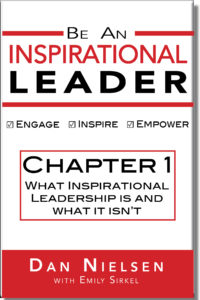In June 1972 I started working for a leader by the name of Max Coppom. Max was the founding CEO of what was then known as West Nebraska General Hospital, and he’d hired me to be the vice president, administration. I had a very positive first impression of Max during the interview with him, and
I have been serving in leadership roles my entire adult life. In the past five years I have written two books on leadership and published hundreds of articles on the topic as well. I have also been honored by invitations to speak on leadership to groups all across the country. Needless to say, great leadership
Following the recent loss of US Senator John McCain, there has been a great amount of media coverage about his life and legacy. Regardless of politics and personal opinion of the man, there is something he said that I think we all can appreciate and respect. It is a brief statement McCain made in response
Good, bad, or indifferent, we all have habits. We know that some of our habits aren’t so great, and most likely we have some thoughts in the back of our minds about habits we think we should probably strive to have—like healthier eating, more exercise, better sleep patterns, etc. But which habits are most important?
Last week I wrote about W. Edwards Deming and his management philosophy that can essentially be summed up as “focus on fixing the system, not the person.” The article was very well received, and of the dozens of comments, almost all voiced strong support of this philosophy. However, there were also many people who disagreed
American engineer and statistician W. Edwards Deming (1900-1993) was passionate about improvement. Throughout the 20th century Deming’s philosophies and expertise helped to improve efficiency and quality of countless processes and products throughout the world—an impact and legacy that will far exceed his own lifetime. Deming is best known for his influence and impact on the post-war
Where do you do your best thinking? And why do you think that is where you do your best thinking? I posed this question to my LinkedIn colleagues a few weeks ago, and as I read through the dozens of responses, I quickly noticed some patterns. While this was not a professionally conducted study or
A couple weeks ago I posted this question on LinkedIn: “Where do you do your best thinking, and why do you think that is where you do your best thinking?” Nearly 60 people answered the question (you can see the original post and read all the comments here) and I was delighted by the wide

